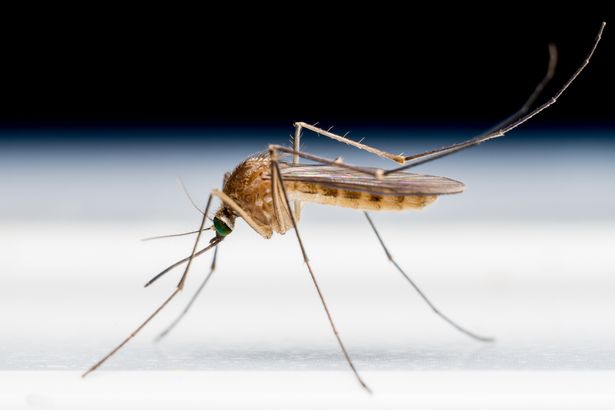Health officials have raised concerns about outbreaks of mosquito-borne diseases in Europe Two European countries have reported outbreaks of mosquito-borne diseases this summer(Image: Getty Images)
Two European countries have reported outbreaks of mosquito-borne diseases this summer(Image: Getty Images)
British tourists have been issued travel advice after a number of outbreaks of deadly mosquito-borne diseases have been reported in popular holiday destinations.
Cases of dengue, West Nile virus and chikungunya have now been detected in Europe, including parts of France and Italy.
Some climate researchers believe these diseases, typically found in tropical regions, could become endemic in Europe as a result of increased travel and warmer weather driven by climate change.
It comes as the World Health Organisation (WHO) warns that chikungunya, a viral disease spread by infected mosquitoes, is surging through islands in the Indian Ocean and moving closer to Europe.
The organisation is calling for urgent action to prevent a repeat of the last major epidemic two decades ago, which infected nearly half a million people worldwide.
“We are seeing history repeating itself,” Diana Rojas Alvarez, a medical officer at the WHO, told reporters in Geneva, drawing parallels to the 2004-2005 epidemic when the virus swept across the Indian Ocean before spreading worldwide.
 Experts warn mosquito-borne diseases are expanding to new areas due to climate change(Image: Getty Images)
Experts warn mosquito-borne diseases are expanding to new areas due to climate change(Image: Getty Images)
The virus, which can sometimes trigger eye, heart or neurological complications, is now spreading to Madagascar, Somalia and Kenya, with outbreaks also reported in South Asia.
In Europe, cases linked to the Indian Ocean outbreak have been confirmed, with local transmission reported in France and suspected cases in Italy.
Until now, both dengue and chikungunya have only been found in Italy in travellers returning from abroad. However, the Foreign Office-supported Travel Health Pro website says local cases of the viruses have been detected.
As of Wednesday (July 23), a total of 38 locally acquired cases of chikungunya have been detected in France since May 1, including in popular holiday destinations like the French Riviera and Corsica.
Public health authorities have also detected two locally acquired cases of dengue so far this year, the latest of which was reported in Saint-Chamond, Auvergne-Rhône-Alpes on July 15. A further 50 imported cases of the disease have been recorded in a number of regions.
In Italy, 82 imported cases of dengue have been recorded in a number of regions, one of which was a locally acquired case. The first locally acquired case of chikungunya of the year was also detected in the Emilia Romagna region on July 15, with a further 50 imported cases reported.
Dengue causes symptoms that are similar to flu, including a fever, headache, muscle and joint pain, pain behind the eyes, and feeling or being sick. In rare cases, it can cause a life-threatening infection called severe dengue.
 Brits are urged to take precautions against mosquito bites when abroad(Image: Getty Images)
Brits are urged to take precautions against mosquito bites when abroad(Image: Getty Images)
Cases of another mosquito-borne virus, West Nile virus, have also been reported in Italy, with 10 confirmed cases as of July 20. The virus causes fever, headache or muscle aches, swollen lymph nodes and a rash. Most mild infections resolve within a few days, but the virus can cause neurological disease and death in a small number of cases.
In May, West Nile virus was found in UK mosquitoes for the first time, with the UK Health Security Agency (UKHSA) citing warming global temperatures as a reason for the spread of infected mosquitoes.
“The detection of West Nile virus in the UK is part of a wider changing landscape, where, in the wake of climate change mosquito-borne diseases are expanding to new areas,” said Dr Arran Folly, Arbovirologist at APHA and lead of the Vector-Borne RADAR project.
Advice to Brits travelling to France and Italy
The Travel Health Pro website urges travellers to avoid mosquito bites in countries affected by outbreaks, particularly during daytime hours.
It recommends wearing long sleeves and trousers, applying DEET insect repellent regularly and following insect and tick bite avoidance advice.
The website says vaccination against dengue fever is not recommended for travellers to European destinations, and that officials are waiting on guidance on chikungunya vaccine use by the Joint Committee on Vaccination and Immunisation (JCVI) guidance.
If you experience symptoms such as fever or rash after travelling in Europe, it says to see your GP and tell them all the countries and regions you visited.
